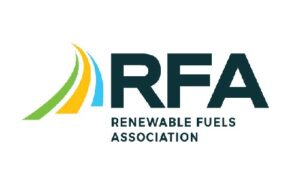North Dakota creates program to help ethanol producers lower their CI scores

North Dakota has created a low-carbon fuels fund to support ethanol producers in reducing carbon intensity, boosting corn demand, and entering the sustainable aviation fuel market. Replacing an older incentive program, the new fund will finance CO₂ capture, efficiency upgrades, and yield improvements—covering up to 50% of project costs, capped at $3 million per biennium.
North Dakota Gov. Kelly Armstrong on April 15 signed a bill creating a low-carbon fuels fund that is designed to help the state’s ethanol producers lower the carbon intensity (CI) of the fuel they produce, increase local demand for corn, and help producers capitalize on the opportunity of sustainable aviation fuel (SAF).
The legislation, SB 2333, was introduced by North Dakota Sen. Terry Wanzek on Jan. 20. The North Dakota Senate on Feb. 14 voted 42 to 2 to approve the bill. The state’s House voted 65 to 25 in favor of the legislation on April 4. Armstrong signed the bill into law on April 17.
The new low-carbon fuels fund replaces North Dakota’s current ethanol production incentive, which was a program designed to provide aid to the state’s ethanol producers during adverse times when ethanol prices were unusually low and/or corn prices were unusually high.
According to statements made by Wanzek during a congressional hearing held earlier this year, the state’s ethanol plants have all grandfathered out of the current incentive program and are no longer eligible to receive funds. Yet, the production incentive has a continuing appropriation of 40% of all sums collected for the registration of farm vehicles, he said. As of late January, the balance of the program was approximately $6 million.
SB 2333 reallocates that funding to a new low carbon fuels fund that will distribute incentives to ethanol facilities for eligible projects to increase efficiency and decrease the CI of their production processes. Eligible projects under the program would include the construction of new infrastructure or replacement of existing infrastructure for CO2 capture and storage, beneficial use of CO2, energy efficiency enhancements, or ethanol yield improvements.
Distributions made under the newly created program are limited to 50% of the cost of eligible capital projects and may not exceed $3 million per biennium. In addition, cumulative distributions per facility are limited to $10 million over a 10 year period, beginning with the first distribution to the facility.
The state agency tasked with implementing the program may use up to $1 million from the fund to contract with an entity to develop a CI verification process.
To Read more about Ethanol Industry & Bio Energy News, continue reading Agriinsite.com
Source : Ethanol Producer Magazine
















